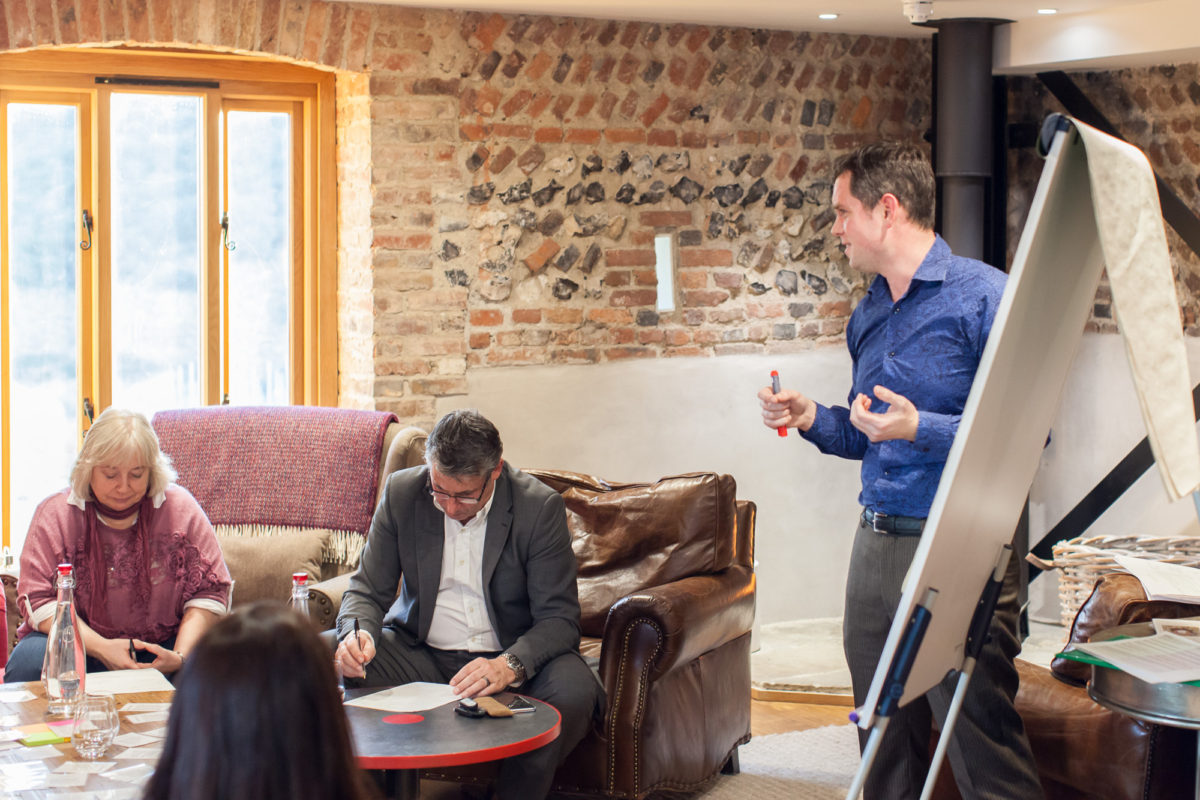16.11.17
From Strengths to Mastery

In the first of our series of articles exploring the application of strengths, Joshua French (one of the Bailey & French team) shares his experience of building on his strengths to craft a working life he loves:
At 24, I felt like I’d failed already. As a teenager I’d become increasingly certain that I wanted to be an actor, and so went to drama school to fulfil that dream. By 24, I was struggling to make a living from acting, and every fibre of my being was telling me to let go and move on to something else. It was a hard decision because, although I didn’t want to live the life of an actor any more, there were aspects of acting I was good at and loved and didn’t want to say goodbye to: empathically connecting with an audience, exploring emotions and ideas, and being playful and spontaneous on stage.
These, in fact, are all strengths of mine, things I excel at and am energised by. To label them, I’d say, ‘empathy’, ‘explorer’ and ‘playfulness’. By rigidly thinking acting was the only job could use these in, I’d set myself an unhappy trap. I’d fixated on one career, without realising that using my strengths was the important thing, not the job! After moving on from acting, I soon found that those same strengths could be used in any role.
A few more steps on the journey of self-discovery later, I realised that to truly thrive in work and life I’d need to shift perspective about my growth and development too. Climbing a career ladder would never give me the happiness I wanted. What would? Getting better and better at using my strengths, and using them in increasingly meaningful ways: working with others to improve society. There’s a big chunk of research to back up that this is a genuine route to happiness too*.
So how can we get better at using our strengths, developing mastery over them and becoming happier and more successful in the process? Here are three ideas:
Use Strengths for Fun
Whether we have a little or a lot of leisure time, it is wise to dedicate this time to activities that use our strengths (rather than watching TV, say). For example, because I have an ‘explorer’ strength, every weekend I try to make sure I visit somewhere new, and read non-fiction. Every moment using a strength helps develop it.
Recraft Work and Life around Strengths
Many of our routine day-to-day activities at work and home can be approached creatively, harnessing our strengths and transforming our enjoyment of them. For example, I don’t enjoy writing emails, but by imagining I’m talking directly to the person I harness my ‘empathy’ strength and find it much easier and more energising.
Collaborate More Effectively
By being authentically honest about our strengths and weaknesses we help create the conditions for those around us to be the same. Then, whether we are discussing the implementation of a strategy or the tidying of the house, we can have a conversation about dividing up the work so it gives everyone maximum opportunity to play to strengths.
At 24 I stopped being an actor. Now, at 36, I’m a consultant (a ‘normal-sounding’ job I wouldn’t have even considered in my teens). I love it. I get to empathically connect with audiences, I get to explore emotions and ideas, and I get to be playful and spontaneous. I get to use all my strengths in my role, I’m much stronger and happier than I was before, and I’m clear about where I’m heading.
*For examples, visit http://www.viacharacter.org/www/Research/Featured-Research
To help individuals and organisations use their strengths most effectively, we’ve developed a series of six 45-minute workshops teaching people how to apply them in different workplace scenarios – find out more here.
Over the next two weeks, we’ll be posting articles exploring each of these scenarios from a theoretical, business or personal perspective.